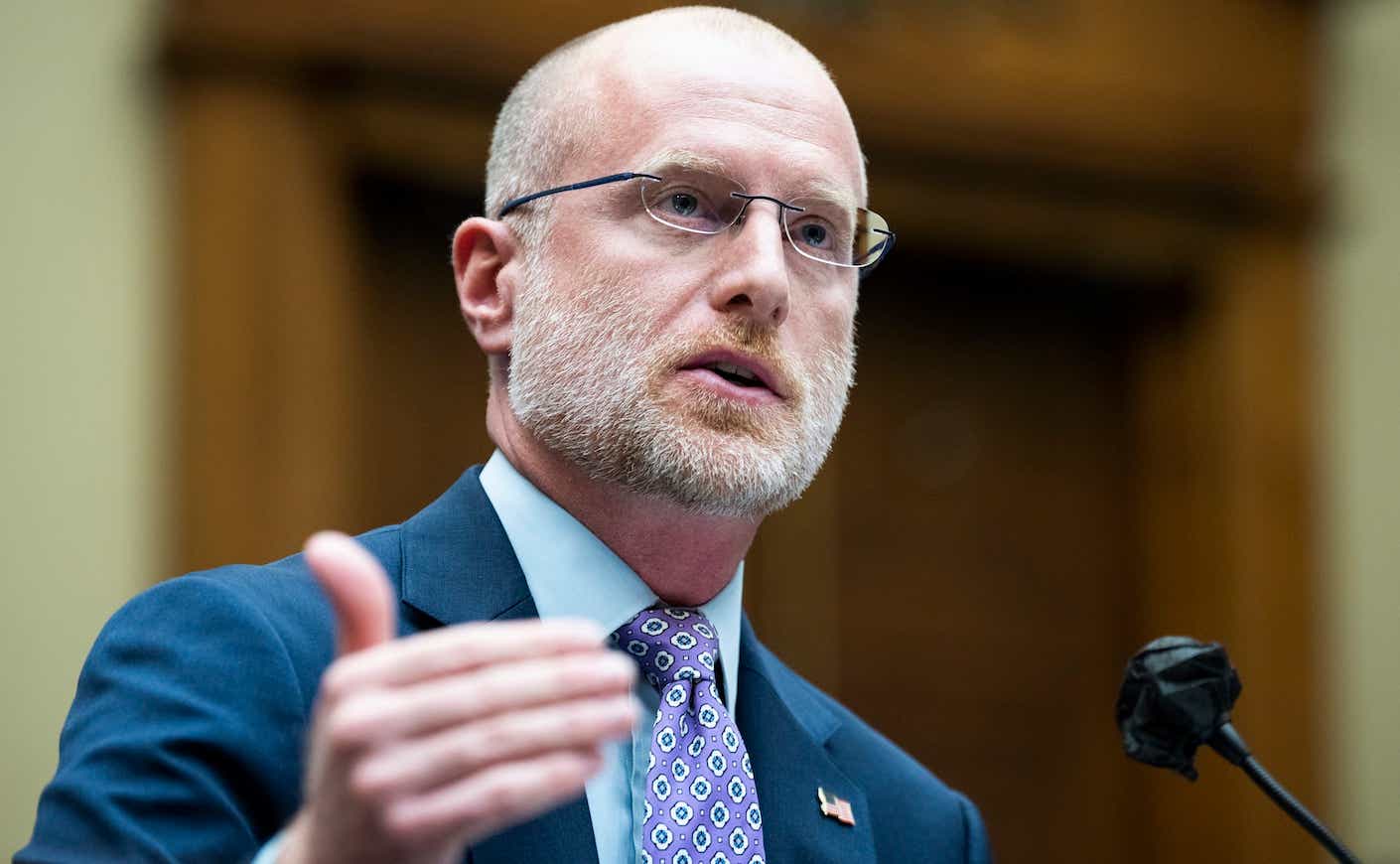President-elect Trump has tapped Brendan Carr to lead the Federal Communications Commission (FCC), which could lead to a major shake-up within the agency.
In a statement announcing the news, Trump praised him as "a warrior for Free Speech" who has "fought against the regulatory Lawfare that has stifled Americans' Freedoms." In response, Carr said on X that he was "humbled and honored" to take on the role of the next FCC chairman.
Carr, the commission's most senior Republican member, could fundamentally reshape the commission by expanding its power to pursue Big Tech. (However, whether he'll get this free rein is debatable under current law.)
Here's what you need to know about the cabinet pick.
Brendan Carr's long history with the FCC
Carr has been at the FCC for more than a decade. He first joined the agency in 2012 as a legal adviser to former Republican FCC Chair Ajit Pai.
Trump then appointed Carr to FCC commissioner in 2017, and President Biden nominated him again in 2023 for another term running through 2029. In his position, Carr has primarily focused on expanding high-speed internet in rural areas and deploying 5G wireless networks.
He's also advocated for scaling back net neutrality regulations, which essentially forces internet service providers to treat all information that travels through their networks equally. The rules he voted to roll back were reinstated under the current (Democratic) FCC Chair Jessica Rosenworcel, who's expected to resign once Trump takes office.
Brendan Carr's political views
The FCC could swing much more conservative under Carr. He has already vowed to end the agency's long-running diversity, equity, and inclusion (DEI) program starting next year.
He also shares the president-elect's vision of challenging alleged biases in the media and tech industries. Leading up to the election, he made headlines for criticizing Vice President Kamala Harris' cameo on Saturday Night Live, calling it a "blatant effort" by the network to evade an FCC rule that requires broadcasters to give rival candidates equal air time.
For the record, NBC told the Trump campaign of this appearance, and the Republican nominee made two subsequent appearances on the network, including during Sunday Night Football. That didn't prevent Carr from threatening to revoke NBC's broadcast license in retribution. In an interview with Fox News, he said the government needs to "keep every single remedy on the table."
Carr has vowed a similar crackdown on big tech by expanding the FCC's oversight to include companies such as Google, Meta, Apple, and Microsoft. "We must dismantle the censorship cartel," he declared on X this week.
Brendan Carr's relationship with Elon Musk
Carr has also aligned himself with one of Trump's fiercest allies: Elon Musk.
Musk's satellite internet provider, Starlink, received an $885 million grant from the FCC. However, the agency later revoked it after the company failed to meet speed requirements and couldn't prove it would serve enough unconnected rural homes.
Carr vehemently opposed this decision, claiming that the Biden administration has mistreated Musk. "In my view, it amounted to nothing more than regulatory lawfare against one of the left's top targets: Mr. Musk," he wrote in an op-ed for The Wall Street Journal.
However, Musk could face more favorable treatment if Carr’s in charge.
Brendan Carr's involvement in Project 2025
Carr first outlined his vision for the FCC in Project 2025, which is a conservative blueprint for taking back the White House.
In his section, Carr called for "promoting national security." As part of this effort, he suggested banning TikTok if the company fails to disentangle from its China-based parent company.
He also advocated for working with Congress to reform Section 230 of the Communications Decency Act of 1996, which protects websites and social media companies from liability for user content.
"Congress should do so by ensuring that Internet companies no longer have carte blanche to censor protected speech while maintaining their Section 230 protections," Carr wrote in Project 2025.
Despite his ambitious plans, it's unclear whether he can reshape the FCC's priorities, particularly when it comes to controlling tech companies. Some legal experts believe Carr's proposals will require congressional approval and are fundamentally "inconsistent with the law."









